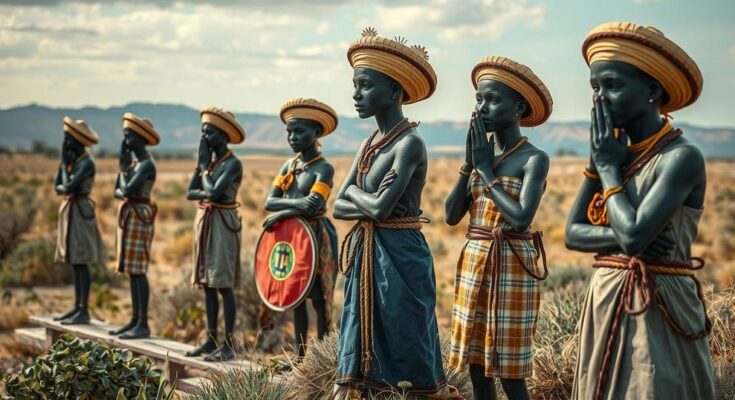A UN report has exposed widespread arbitrary detention in South Sudan, highlighting human rights abuses by government forces and armed groups. It documents numerous cases of unjust detentions—including those of women and individuals with mental health issues—and calls for urgent reforms in the justice system as the country approaches significant elections in December 2026.
A recent joint report from the United Nations Mission in South Sudan (UNMISS) and the Office of the UN High Commissioner for Human Rights (OHCHR) has unveiled prevalent arbitrary detention practices in South Sudan, revealing severe human rights abuses by both government security forces and paramilitary groups. The study, spanning from January 2023 to May 2024, highlighted alarming patterns of arrests, particularly among women and girls opposing forced marriages or seeking divorces, reflecting systemic discrimination.
The report points out that men constitute the majority of those subjected to such detentions, which brings significant socio-economic repercussions for their families. Furthermore, individuals with mental health issues frequently face incarceration without due process, qualifying as arbitrary detention. Factors contributing to this crisis encompass a frail justice system, lack of accountability, and the deterioration of legal standards in South Sudan. The findings underline that arbitrary detention intensifies poverty, stifles economic growth, and worsens public health outcomes.
In anticipation of the forthcoming elections scheduled for December 2026, the report stresses the urgent requirement for ongoing international support and capacity-building efforts to fortify justice mechanisms at both national and state levels. UNMISS and OHCHR have urged the South Sudanese government to cease these arbitrary detentions and adherence to international human rights norms for all detainees. Additionally, the joint offices advocate for prompt, independent investigations and prosecutions for those implicated in human rights violations.
The report also noted the establishment of an ad hoc Judicial Reform Committee by the government on July 28, 2022, tasked with reviewing relevant laws and proposing judicial reforms aimed at a more efficient judicial system. While the recommendations from this Committee remain undisclosed, there is hope for an independent judiciary that enhances equitable access to justice, is inclusive, and offers protection for vulnerable populations.
Compounding these challenges, the UN Office for the Coordination of Humanitarian Affairs (OCHA) reports that nearly 70 percent of South Sudan’s population, approximately 9.3 million individuals, is projected to require humanitarian assistance in the coming year. This appeal primarily targets the most vulnerable demographics. The country continues to confront numerous adversities including armed conflict, climatic disturbances, economic turmoil, and health crises, alongside the influx of individuals escaping the conflict in neighboring Sudan, with over 900,000 refugees having crossed into South Sudan since April of last year and an expectation of an additional 337,000 in the upcoming year.
The ongoing crisis in South Sudan has roots in a complex tapestry of political instability, armed conflict, and economic hardship stemming from the country’s tumultuous history since its independence in 2011. With pervasive human rights violations and ineffective governance, many citizens face threats of arbitrary detention by government and military authorities. The humanitarian situation in South Sudan has deteriorated sharply, fueled by internal and external conflicts, which has exacerbated the plight of millions who now rely on urgent humanitarian support. This context highlights the pressing need for judicial reform and respect for human rights as outlined in the recent UN report.
The UN’s report brings critical attention to the widespread issue of arbitrary detention in South Sudan, emphasizing the human rights violations perpetrated by security forces and their monumental socio-economic impacts. As the country approaches important elections in late 2026, the call for judicial reforms and adherence to international standards for human rights is imperative. The international community’s engagement and support for South Sudan’s judicial capacity can play a pivotal role in addressing these entrenched challenges.
Original Source: www.jurist.org




